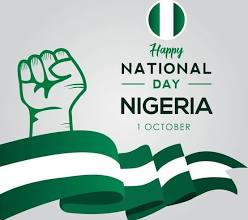Every October 1st, since 1960 every Nigeria Celebrate her Independence Day!
When is Nigerian Independence Day?
Nigerian Independence Day is a national holiday in Nigeria, and it’s celebrated on October 1st every year. The day is a celebration of Nigeria’s independence from British rule, which was established on October 1st 1960.
Nigeria’s independence was established under Governor General Dr Nnamdi Azikiwe, who later became the country’s first president.
History of Nigerian Independence Day
Nigeria is the most populous nation of West Africa, being home to around 186 million people. It has a rich history, and Independence Day celebrates the country breaking free from British colonial rule.
Nigeria was first colonised by the British and Portuguese in the late 15th Century. These empires used ports of Nigeria for trade of goods, as well as the trading of people as part of the Transatlantic slave trade. Lagos was first invaded by the British in 1851, before being annexed in 1865. In 1901, Nigeria became a British protectorate, meaning that it was officially under the ownership British empire, and the borders of modern Nigeria were first established.
After the second world war, calls for an end to the cruel and exploitative colonial rule of the British Empire swept across Africa. After a long struggle towards independence, Nigeria finally gained independence from the British on October 1st 1960, which is now celebrated as Independence Day.
At first, the country was a parliamentary democracy, ruled by Prime Minister Abubakar Tafawa Balewa. It later became a federal republic and adopted a new constitution in 1963, with Nnamdi Azikiwe (former governor-general) becoming the first President of Nigeria.
How is Nigerian Independence Day Celebrated?
Nigerian Independence Day is celebrated with plenty of parades, bands, parties, food and gatherings of friends and family alike.
The day usually starts with an address from the President in the morning, which officially starts the day of celebrations. After this, there’s a ceremonial raising of the Nigerian flag, and the cutting of an Independence cake which usually displays the flag’s colours or coat of arms.
There’s also an official parade, with lots of bands, music, imagery, dancing and a processional changing of the guard. After this, there’s usually a performance of songs and dances to represent the many different ethnic groups that make up Nigeria, ensuring everyone is represented at the parade.
The streets are bustling and busy with people celebrating the country’s independence. You’re likely to see lots of flags, signs and colourful clothing, as people wear green and white, the national colours of Nigeria.

